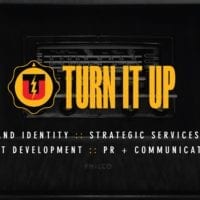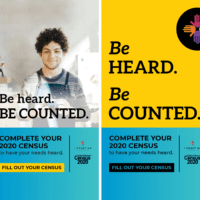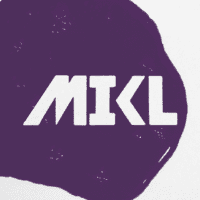The Rant: Death to Focus Groups
By The Denver Egotist / /
Volume 37 In a Series By Felix
I’ll start this one with some words from a great man, much greater than myself, who died way before his time at age 32. Ladies and gentlemen, the late Bill Hicks:
“Saw a movie this year called Basic Instinct. Now, Bill’s quick capsule review: piece of shit. Thank you. Anyway, after I saw it about eight times… I come to find out, after seeing this film, all of the lesbian sex scenes were cut out of this film because the test audience… was turned off by them! Boy, is my thumb not on the pulse of America. I don’t wanna seem like Randy Pan the Goatboy… but that was the only reason I went to that piece of shit film. Sorry. If I had been in that test audience, the only one out front protesting that film woulda been Michael Douglas demanding his part be put back in.”
So, they showed the first cut of that shitty film to a test audience, a focus group, and then asked them what they didn’t like about it. And based on the opinions of a very small group of “average” people, they decided what the next cut of the film was going to be. As it turned out, it was a version without a bunch of lesbian sex scenes.
I’m not saying the crappy film would have been better with all of that stuff in there, although it couldn’t have been any worse. No, the problem here is that you cannot judge what everyone wants by asking a tiny, tiny percentage of the potential audience what they think. And that also goes for product launches (New Coke anyone?) – or advertising.
Some of the major pitfalls here are obvious. First, your average focus group is made up of people that aren’t a true average of society. For a start, they volunteered to be in a focus group. Right there you have a bunch of people who aren’t the norm. I know my dad would rather gouge his own eyes out with a dirty spoon than sit in a room with a bunch of strangers, spending two hours talking about a TV spot.
You also have the “saving face” factor, and this is huge. When Seth Godin spoke at DU a few years ago, he talked about coffee. When asked what people want from their cup of joe, they give the usual response. “I want it rich and bold and strong. I want a roast with lots of flavor and depth, something Colombian or French.” I’m paraphrasing, but you get the idea. However, when it comes down to it, that’s not what people want at all. They want weak, milky, sugary coffee with none of the bitterness associated with rich, dark coffee. They want middle-of-the-road.
Focus groups are controlled, usually, by moderators who ask leading questions and probe for cracks in the armor. A prime example of this is the tragedy of the Larry David American Express commercial. I wish, wish, wish I could find a copy for you. I was lucky enough to see it at the Steve Hayden talk recently, and he showed us all. It was fantastic. Larry David refuses to do the ad for Amex unless he can do it in the style of an over-the-top Japanese commercial, like the shitty ones done by Schwarzenegger, Nicolas Cage, Tom Cruise and more. The result is an assault on the senses, and as funny as any episode of Curb Your Enthusiasm.
The focus group, a bunch of Japanese-American people, gets together to watch the spot and they’re then asked the question “what do you find offensive about that ad?”
WTF?!!
The question should have been “what did you think of that ad?” or “so, thoughts please?” Instead, the question probes for negative responses to the ad and, of course, it gets them. When asked WHAT you find offensive, you rack your brain to answer the question, and you usually find an answer. So, the ad never saw the light of day.
The director of the spot was so pissed, he went and did the same commercial with Conan O’Brien. It was a pale, heartless imitation and did not work anywhere near as well. Ironically, the Larry David spot pushed the benefits of the Amex card more than any other spot in Amex history!
There’s a phrase from Men In Black that I use all the time when I refer to focus groups – “A person is smart, people are dumb.” It’s true. Put a bunch of people in a room with a great product, movie or TV spot and you watch them hack the shit out of it. The original cut of Blade Runner was amazing. It still stands up to the test of time, and it’s one of my all-time favorite movies.
But the pansy-assed test audience hated the downer ending, the implication that Deckard was a replicant (he was), and they got completely lost within the plot, requiring help throughout the film. The studio makes Ridley Scott add a vomit-inducing happy ending, cuts out the dreams of unicorns (which makes the origami unicorn almost meaningless) and then adds this hokey Sam Spade VO that Harrison Ford had to recite almost at gunpoint. Cheers, focus group! You’re morons. And thank fuck for the Director’s Cut, probably one of the only necessary Director’s Cuts ever needed (Aliens needed one, too).
So, it’s time to kill the focus group. For research, I guess they’re fine. I do agree with Luke Sullivan to some extent though – “extensive research has proven that extensive research is often wrong.” But, if you want to get a bunch of people in a small, sweaty room and ask them what they think of your client’s current product, service or ad campaign, go ahead. Use people for insights. But never, ever think that putting people in front of the finished ad is a good idea. You’re playing Russian Roulette with your campaign, but this time there are five bullets and one blank.
Please, print the poster and stick it around the office, under your account manager’s nose, or email it to every dick that insists focus groups are a good idea. Focus groups kill good ads and save bad ones. You have been warned.






Comments
jamie November 26, 2009
I think I like this article.
I think I like this article. Let me show it around and I’ll get back to you…
Promotional Products November 26, 2009
Great stuff, this was a great
Great stuff, this was a great article, each paragraph was better than the previous one. I especially liked the coffee analogy, some people just don’t understand the flavor of good coffee. This reminds me of people that ruin good whiskey by adding coke or tonic water. I also agree that focus groups are very misleading and the moderators have an agenda and line of questioning that will give them a certain desired results. Focus groups need to include people of all sorts of races, ages, etc. Spice up the opinions that you will receive.
Allison January 19, 2010
Loved reading this article.
Loved reading this article. Some very strong opinions here and I can empathize with most of them. For one, there are a lot of ad hoc researchers who dilute this industry. Why someone would test an ad among a group of volunteers and call it a focus group is beyond me. I call that a public input meeting.
Also, it’s never a good idea to put a finished product in front of your target audience without ever uncovering insights upfront. The creative process should be informed by research from the beginning. A great example of this kind of partnership was the PT Cruiser.
Chrysler partnered with a researcher to dive deep into the Reptilian brain of consumers to discover the emotions that triggered behavioral responses. They took these insights to the drawing board, then back, then redrew again until they landed on a final design that became a cult success in both the US and Europe markets. And yes, they tested it in focus groups.
Too many people conduct poor focus groups because the barriers to entry are (perceived to be) low. Agencies can cut costs by doing research in house or hire a cheap outside consultants who lack proven, practical experience and strategy. If an agency won’t partner with their researcher to uncover insights from a specific audience and then use them to inform their creative process, then it’s no wonder focus groups turn into roasts.
How about we call this rant to A Death to Fake Research and Lack of Strategy.